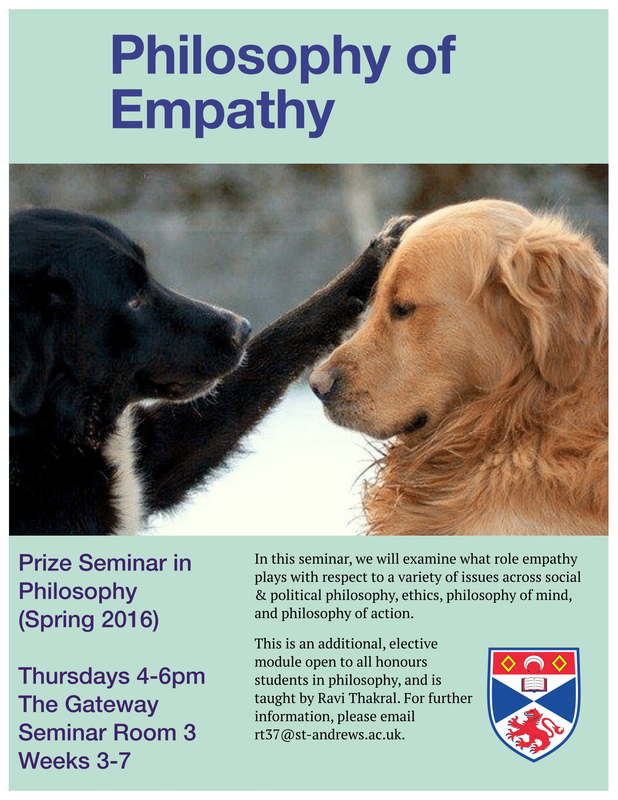|
My research is in the philosophy of language and in ethics, with many vested interests in topics across epistemology, logic, and related areas. I also have strong teaching interests in some areas in the history of philosophy.
Below you will see information about my background and experience in teaching. Much of my recent work is on generics, especially (1) their place in ethical theory and (2) on the harms that generics can convey and questions about what we can do to mitigate these harms. I am also working on some issues in moral epistemology. You can read more about this, as well as some recent news, below. I am a Lecturer in Philosophy at the University of Nevada, Reno. Before coming to UNR, I taught at the University of Sussex and at the University of St Andrews. I am also a Research Fellow at the Hoffberger Center for Ethical Engagement at the University of Baltimore. I did my PhD and MLitt in Philosophy in the St Andrews-Stirling Graduate Programme where I was a member of the Arché Philosophical Research Centre for Logic, Language, Metaphysics, and Epistemology. I did my BA in Philosophy at the University of Texas at Austin. Feel free to get in touch. I'd love to hear from you. |
Recent News, Events, & Updates
-
Teaching Award
2024 Dean's Award for Outstanding Teaching, College of Liberal Arts UNR.
-
New paper
'Moral principles as generics' - forthcoming in the Journal of the American Philosophical Association.
-
Recent workshop
Workshop for PhD students on 'Generic Generalizations in Science, Ethics and Society' at the University of Oslo in June 2022. Co-taught with Mark Bowker and Mirela Fus. More information here!
-
Recent Talks
Recent talks at Baltimore, Edinburgh, Sussex, St Andrews, Vienna (ECAP) on prejudicial language. Recent talk on the epistemology of normativity at Glasgow (European Epistemology Network). Recent talks on generics and moral principles at the University of York (departmental colloquium), CU Boulder (Rocky Mountain Ethics Congress), and San José State University (departmental colloquium).
-
Arché Anniversary Conference
Hosted the Arché 20th Anniversary Conference in St Andrews 19-21 June 2019. Member of the organizing committee. See here for more details!
-
University-Wide Teaching Award
Students' Association Teaching Award 2019. Awarded to only one PhD candidate across all departments at the University of St Andrews. A press release is available here.
Research
Publications
Journal of the American Philosophical Association (2024)
Inquiry (2018)
Teaching
- Contemporary Moral Issues
- Ethical Theory (combined undergraduate and graduate)
- Introduction to Philosophy
- Intro Symbolic Logic
- Survey of 20th Century Philosophy
- Philosophy of Language (combined undergraduate and graduate)
Awards
Dean's Award for Outstanding Teaching - UNR (2024)
- In 2024, I received a college-wide teaching award for excellence in teaching (non-tenured category) at the College of Liberal Arts Awards Ceremony and Sesquicentennial Celebration. (Find out more about the University's 150th birthday here).
Students' Association Teaching Award - St Andrews (2019)
- In 2019, I received a university-wide teaching award given to only one graduate teaching assistant across all departments. See here for a press release.
PhD Teaching Prize - St Andrews (2017)
- In 2017, I won a department-wide competition to develop and teach my own honours seminar. The award is based upon the submission of the original design of a course for advanced undergraduate students and was judged by a committee of faculty members. I was subsequently given the opportunity to be lecturer on a course I designed on empathy which covered a range of issues in social and political philosophy, ethics, philosophy of mind, and philosophy of action.
Best Tutor in Philosophy - St Andrews (2014)
- In 2014, I received the award of Best Tutor in Philosophy while teaching a first-year introduction to epistemology and logic. This is a student-run award and I was selected on the basis of receiving the best overall feedback and highest score of 7.95/8 on independent student evaluation forms.




